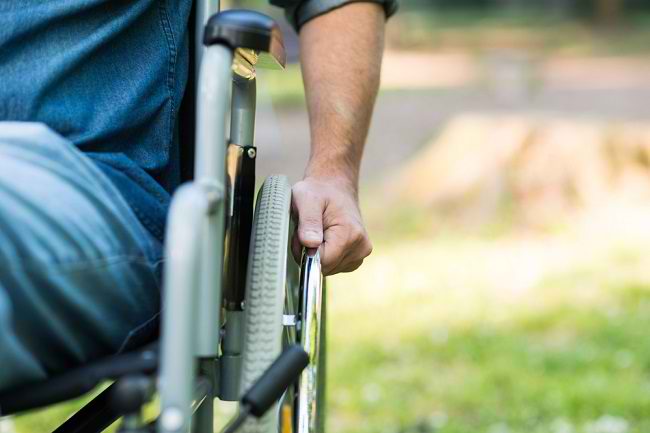Inflammatory bowel surgery is a procedure to treat inflammatory bowel disease (inflammatory bowel disease). Although effective and generally safe, this surgery still carries the risk of causing a number of side effects.
Based on the type, inflammatory bowel disease is divided into two major groups, namely Crohn's disease and ulcerative colitis. Crohn's disease can occur along the digestive tract (from the mouth to the anus), while ulcerative colitis can occur along the large intestine (colon) and the end of the large intestine (rectum).

Currently, there is no therapy that can completely cure inflammatory bowel disease. However, the use of medication, lifestyle changes, and surgery for inflammatory bowel disease can relieve the symptoms experienced by sufferers.
Surgery is considered a last resort for treating inflammatory bowel disease when drug therapy has failed to relieve symptoms. Approximately 70–90% of cases of Crohn's disease and 25–35% of ulcerative colitis are treated with inflammatory bowel surgery.
Indications for Inflammatory Bowel Disease Surgery
The following are some indications of ulcerative colitis that need to be treated with inflammatory bowel surgery:
- Symptoms do not improve after the patient is given the drug
- Uncontrolled bleeding occurs
- There is severe dilation of the large intestine
- Cancer appears
While some indications of Crohn's disease need to be treated with surgery are:
- Drug therapy fails to control symptoms
- There is a leak in the intestine
- There is a blockage or narrowing of the intestine
- A fistula is formed, which is an abnormal channel between 2 organs, such as the intestine and the bladder
- Abscess appears (collection of pus in the abdomen)
Inflammatory bowel surgery can be performed with open surgical techniques or laparoscopic surgery. The advantages of laparoscopic surgery are faster wound healing time and less pain.
In addition, the laparoscopic surgical technique is also cosmetically better because the surgical incision is small. This can also reduce the risk of hernias in surgical scars, and even lower the risk of intestinal adhesions later in life.
Surgery for Crohn's Disease
Some of the common types of inflammatory bowel surgery performed to treat Crohn's disease are:
Intestinal excision (bowel resection)
Intestinal excision is the most common surgical option used to treat Crohn's disease. In the process, the doctor will cut and remove part of the inflamed intestine, then the two ends of the healthy intestinal tissue are sutured and reattached.
Dilation of the intestine (strictureplasty)
Crohn's disease can cause a buildup of scar tissue and narrowing in the intestines. When the intestine becomes too narrow, strictureplasty surgery is needed to open or widen the intestinal opening, so that food or feces can pass through the intestine smoothly.
Proctocolectomy
In severe cases where Crohn's disease affects the entire large intestine to the end of the large intestine, it may be treated with a proctocolectomy, which is surgery to remove the large intestine and connect the end of the small intestine directly to the anus.
However, under certain conditions, the end of the small intestine is not connected to the anus. If this is the case, an ileostomy procedure is performed, which is the creation of a hole or stoma in the abdominal wall to serve as a passageway for feces.
Surgery for Ulcerative Colitis
There are several types of surgery that can be used to treat ulcerative colitis, including:
Protocolectomy
In this operation, the doctor will remove the entire colon and the end of the large intestine. After that, the doctor will make a pouch from the end of the small intestine (ileum).
With this bag, there is no need to make an outer bag or stoma because this bag serves as a reservoir for waste before being disposed of.
Protocolectomy with ileostomy pembuatan
Just like the previous type of surgery, this surgery is also performed by removing the entire colon and the end of the large intestine. The difference is, after the entire colon and the end of the large intestine is removed, an ileostomy is required.
Side Effects of Inflammatory Bowel Surgery
All surgeries have a risk of side effects, including inflammatory bowel surgery. The following are some of the possible side effects of inflammatory bowel surgery:
1. Infection
Any surgery that involves an incision has a risk of causing infection. The reason is, opening the body cavity allows harmful bacteria to enter and infect the body. In addition, surgical incisions can also become infected if not treated properly.
2. Impaired intestinal absorption (malabsorption)
The small intestine is responsible for digesting the nutrients in the food consumed. Therefore, surgery that removes all or part of the small intestine can cause malabsorption.
3. Bleeding
The longer the intestine is cut, the greater the risk of bleeding into the healthy tissue around the intestine.
4. Leaky bowel connection
The gut joint may leak if there is inflammation at the suture site.
5. Intestinal adhesions
Inflammatory bowel surgery can cause scar tissue in the intestines. The accumulated scar tissue has the potential to create adhesions between the intestines, making it difficult for food and stool to pass through the intestines. This will increase the risk of appendicitis and holes in the intestines.
In general, inflammatory bowel surgery is a safe procedure. However, if you experience the above side effects after undergoing this surgery, immediately consult a doctor so that they can be treated as soon as possible.
It is feared that slow treatment can worsen the condition or even make the operation performed in vain.
Written by:
dr. Sonny Seputra, M.Ked.Klin, Sp.B, FINACS
(Surgeon Specialist)









